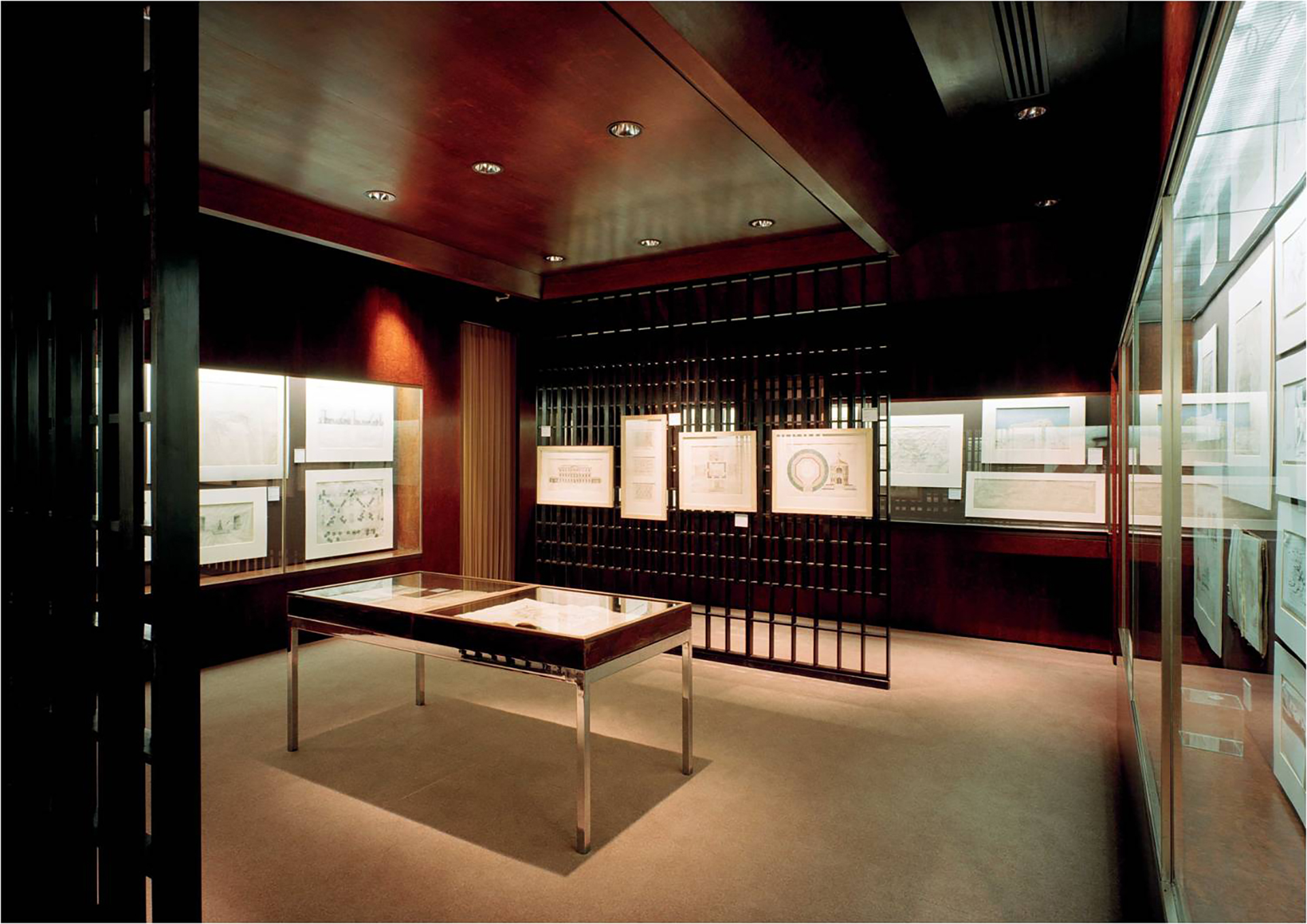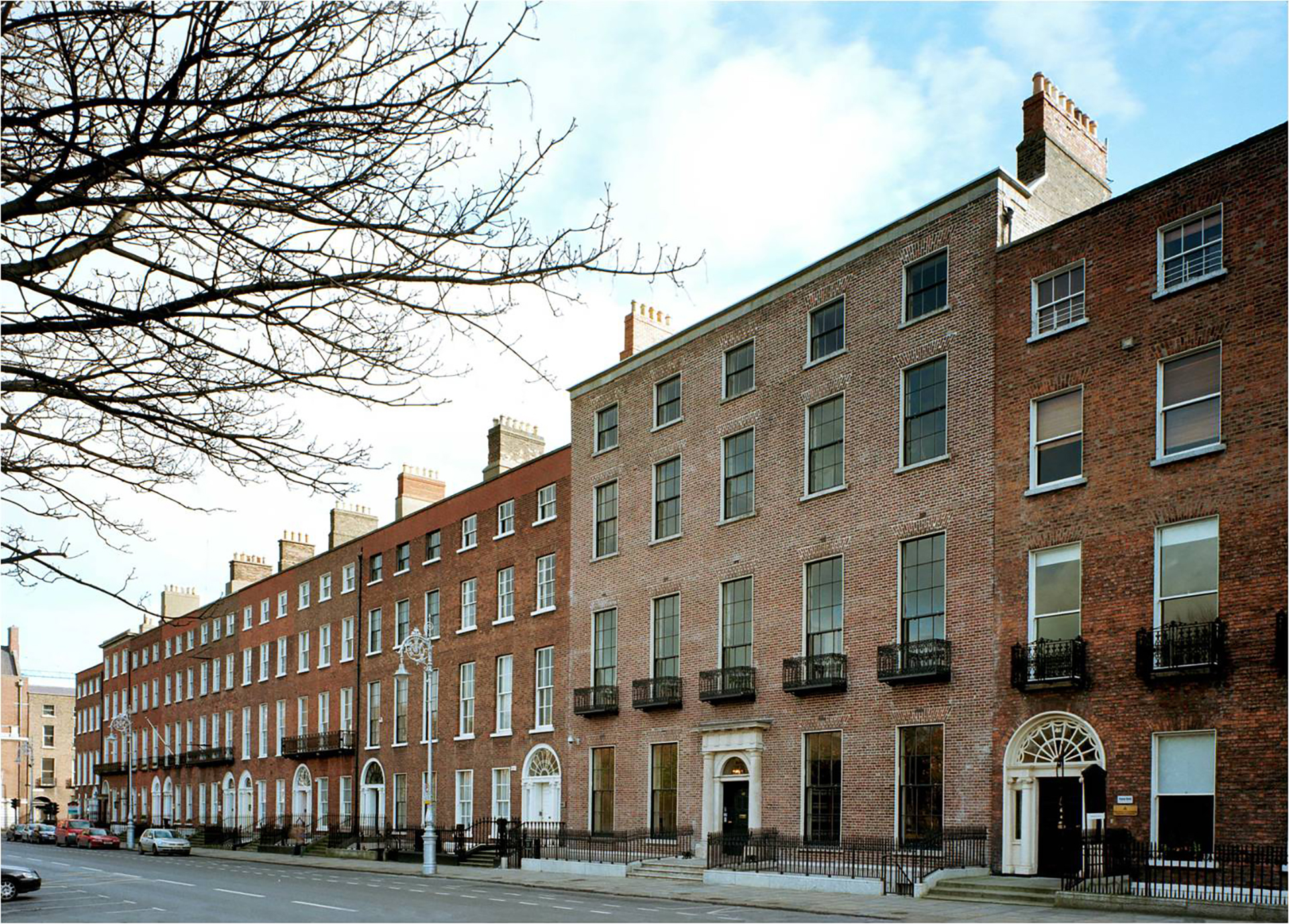Direct access to archival material is provided in the IAA’s Reading Room.
Access to the Reading Room is free and open to all.
A member of staff is always present in the Reading Room to assist readers and provide direction in identifying relevant material. Staff are also available to provide visual descriptions (for blind or low vision readers) for any material, on request.
If you have any questions about accessibility, or require any accommodations to support your visit, please e-mail info@iarc.ie or phone +353 1 663 3040.
Opening hours
The Reading Room is open to the public from 10 am to 5 pm, Tuesdays to Fridays.
On Mondays, the Reading Room is open by appointment only. Please e-mail info@iarc.ie or phone +353 1 663 3040 to make a booking.
Admission
Everyone is welcome at the IAA. However, admission is ultimately at the discretion of the IAA staff, and the IAA reserves the right to refuse admission.
Registration
Readers are required to register to access material. To register as a reader you must be 18 years old or older. Younger researchers must be accompanied by a parent, guardian, teacher or primary carer. Readers may register in the Reading Room or through the online registration form. Readers who have registered previously but have forgotten their reader number should e-mail info@iarc.ie.
Readers should bring their reader’s ticket with them as the reader number on the ticket is required to request reserved items from the IAA collections.
Reader’s tickets are non-transferable and are not forms of identification. The possession of a reader’s ticket does not entitle the bearer to entry to the IAA.
Group visits
The IAA is happy to accommodate group visits, but visits by groups of five or more must be booked at least two days in advance. Bookings can be made by telephone or e-mail to info@iarc.ie.
IAA Catalogue
To find material of relevance to their area of interest, readers should use the IAA Catalogue. Readers may use their own devices in the Reading Room to access the online Catalogue. A public access terminal is also available. The Catalogue is a work in progress. While added to on a daily basis, it contains information on only a section of the IAA’s holdings.
In addition to the Catalogue, individual collection lists are also available for consultation in the Reading Room, and the IAA’s Dictionary of Irish Architects can also consulted online.
If you don’t find what you are looking for in the Catalogue, or are having trouble finding material of relevance to your area of interest, please ask the member of staff on duty in the Reading Room or email queries to info@iarc.ie.
To respect staff and fellow readers, and to protect original archival material which is unique and can be fragile, the following regulations are in place.
Coats and Bags
Coats and bags must be left in the lockers provided in the basement cloakroom.
Accessing material
To view material held by the IAA, other than material held in the Reading Room, readers must complete a call slip. Call slips are available in the Reading Room. Separate call-slips should be used for each item requested. Only five call slips may be submitted at any one time. If you are having any difficulties completing a call slip, ask the member of staff on duty for assistance.
Published material (books, pamphlets, periodicals and press cuttings files) and photographs requested on call slips will be made available in the Reading Room as soon as is practicable, but please note that waiting periods of up to one hour may be experienced.
In the case of drawings, documents and some other categories of material, items requested before 2 pm will be available at 2.30 pm. Material requested after 2 pm and before 5 pm will be available at 10 am the following morning. Material requested by email received after 5 pm be available at 2.30 pm the following day.
Using material
Archival documents are irreplaceable and must be treated with respect. Readers are responsible for all items issued to them until they have returned them to the Reading Room desk.
Restrictions on the use of material will be enforced on conservation and security grounds.
For note taking, pencils only may be used in the Reading Room. Pencils and pencil sharpeners are available at the Reading Room desk. No glue, ink, correction fluid, scissors, or any substance or equipment which could damage material held in the IAA should be brought by readers into the Reading Room.
Tracing is strictly prohibited, as is the use of rulers, dividers etc to take measurements. Writing materials must not be placed on any book, manuscript, map, plan or drawing. Readers should not lean on maps, plans or drawings and should take care unrolling rolled items. No archival material should be placed on the floor.
No markers or place-holders should be inserted into books. Unopened or uncut books should be brought to the attention of the staff member on duty.
Readers are requested to keep photographs, documents and drawings in their numbered order. To avoid misplacement of photographs, readers are asked to take only one box file at a time from the shelves and to be careful to replace correctly photographs which have been removed from the box file. Notices detailing the correct order are to be found on the inside lid of each box file.
No smoking is allowed in the Reading Room or any other part of the IAA. Food and drink are not allowed in the Reading Room. Chewing gum is strictly prohibited.
Mobile phones should be set to silent and calls should be taken outside the Reading Room. The use of personal stereos or tape recorders is prohibited. Laptop and tablet computers may be used.
Silence should be observed in the Reading Room. Readers behaving in a manner likely to disturb others will be required to leave.
Copying material
Members of the public wishing to make copies of material held by the IAA may do so within the parameters of the relevant copyright legislation using personal devices including cameras (digital or analogue), phones or other devices with cameras. Photocopiers are not available for public use. Scanners or other copying devices which touch the surface of the material being copied are not permitted. Flash photography and the use of tripods are also not allowed. Material must remain on the Reading Room tables.
No copying will be allowed until the relevant copyright declaration form has been completed and signed, and the relevant fee paid. The fee is €1 per item copied. An item is defined as:
1 drawing
1 photograph
1 mss file or bound volume
1 press cuttings file
1 pamphlet
1 journal article
20% or less of a book.
All copying is at the discretion of the staff member on duty. The IAA reserves the right to refuse permission to any individual to copy any material in its collection.
Digital copies of material held by the IAA can be ordered. These are supplied at a resolution of 300dpi in JPEG format. Charges vary depending on the nature and size of the material to be scanned. The relevant scale of fees is available in the Reading Room. Orders for scans take two weeks to process.



